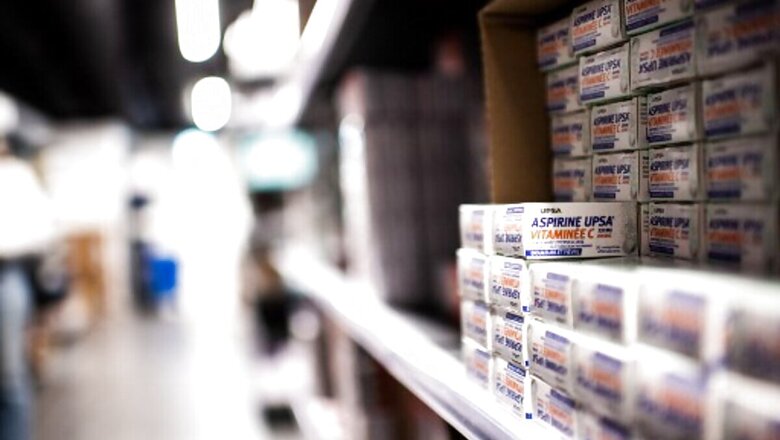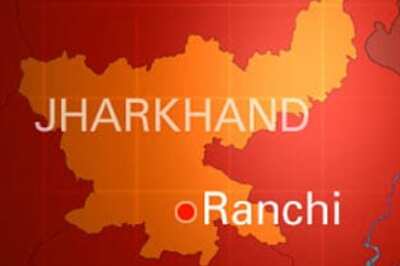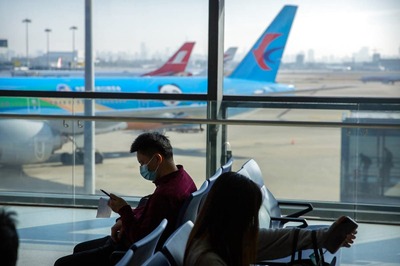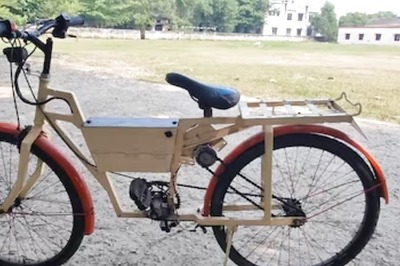
views
“From today, aspirin will be investigated in the world’s largest clinical trial of treatments for patients hospitalised with COVID-19. The Randomised Evaluation of COVid-19 therapy (RECOVERY) trial is taking place in 176 hospital sites across the UK, and has so far recruited over 16,000 patients,” read the RECOVERY Trial’s web information page on Aspirin.
This is the newest entrant in the list of investigational therapies and Professor Peter Horby, from the Nuffield Department of Medicine, co-chief investigator of the RECOVERY trial, said: “We felt it was particularly important to add aspirin to the trial since there is a clear rationale for believing that it might be beneficial and it is safe, inexpensive and widely available. We are looking for medicines for COVID-19 that can be used immediately by anyone, anywhere in the world. We do not know if aspirin is such a medicine but we will find out.”
Other treatments being investigated
The other treatments being investigated in the RECOVERY trial are: Azithromycin, a commonly used antibiotic, Tocilizumab (an anti-inflammatory treatment given by injection), convalescent plasma (collected from donors who have recovered from COVID-19 and contains antibodies against the SARS-CoV-2 virus, and REGN-COV2, an investigational anti-viral antibody cocktail produced by Regeneron.
Why aspirin?
Patients with COVID-19 are at higher risk of blood clots forming in their blood vessels. Platelets, small cell fragments in the blood that stop bleeding, seem to be hyperreactive in COVID-19 and may be involved in the clotting complications. Since aspirin is an antiplatelet agent, it may reduce the risk of blood clots in patients with COVID-19.
The rollercoaster continues
Almost 10 months have gone by since India reported the first case of Covid-19. These months have been a rollercoaster ride for the pharmaceutical industry and also for the medical fraternity with medicines, initially being touted as magic bullets, getting dumped in bins.
Remdesivir out, well almost
This is the case of Remdesivir, the drug the FDA has given the go ahead to. It is finding no takers globally with the WHO Solidarity trial saying no to it. Reuters has reported that the WHO draft document says the priorities are to secure monoclonal antibodies in a tight market and to boost purchases and distribution of cheap steroid dexamethasone, of which it has already booked nearly 3 million courses of treatment for poorer countries.
Remdesivir finds no mention. This after the WHO Solidarity trial said Remdesivir has not proven to reduce mortality. Speaking to News18, Dr Randeep Guleria said, “None of the studies show it reduces mortality. Since we don’t have anything else, we are giving it, hoping that later a better drug would be available. People are getting cured even without getting Remdesivir.”
Indian company pushes for Remdesivir
But the vote of no-confidence did not stop Dr Reddy’s, the pharmaceutical company that manufactures Remdesivir In India, to apply for regulatory authorization that was eventually turned down by the expert panel at the Central Drugs Standard Control Organization or CDSCO.
“To date there is no clarity on ‘restricted emergency use’ approval in the Indian context – what are the conditions/restrictions attached to such approvals and under which provisions of the law are they being granted? Due to lack of transparency, we are in the dark about the data or evidence that was submitted by Dr Reddy’s to support its application to CDSCO for full marketing authorisation of remdesivir,” said Malini Aisola, co-convenor of the All India Drug Action Network. At present, the drug has got emergency authorization use permission.
SEC rejects Cadila;s PegiHepTM
CDSCO’S subject expert committee (SEC) has also rejected Zydus Cadila’s application for emergency use authorization for its biological therapy, Pegylated Interferon alpha-2b or ‘PegiHepTM’ as a treatment of moderate COVID-19 patients. The SEC opined that the data was limited and the size of the Phase two trials small.
Plasma divides opinion
India is also doing a rethink when it comes to plasma therapy, with the ICMR opining it is not helping. The study done was India’s largest ever trial that found convalescent plasma therapy ineffective in Covid-19. But should it be done away with? Likely, says the ICMR; not yet, says India’s top pulmonologist and also a member of the National Task Force on COVID-19.
Dr Guleria says it has a role and it has to be positioned properly. “In my mind, there is still some role of plasma therapy. The plasma that you are giving should be creating neutralising antibodies. Giving plasma therapy just like that without testing if the plasma contains those neutralizing antibodies is of no use. Giving it early would be useful. Giving it later after the 10th or 12th day would not help since the patient would have developed antibodies of his own,” he said.
Read all the Latest News, Breaking News and Coronavirus News here


















Comments
0 comment